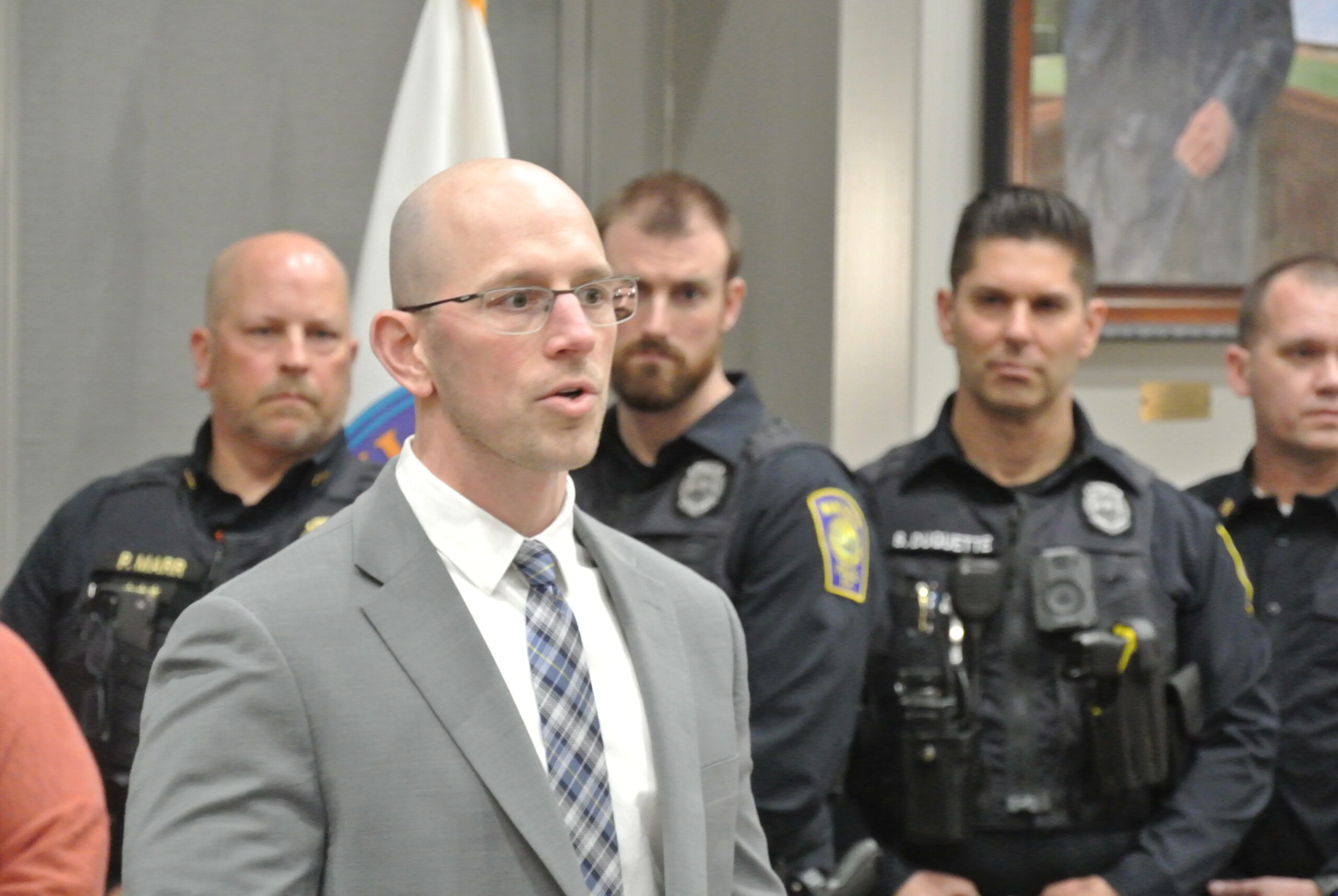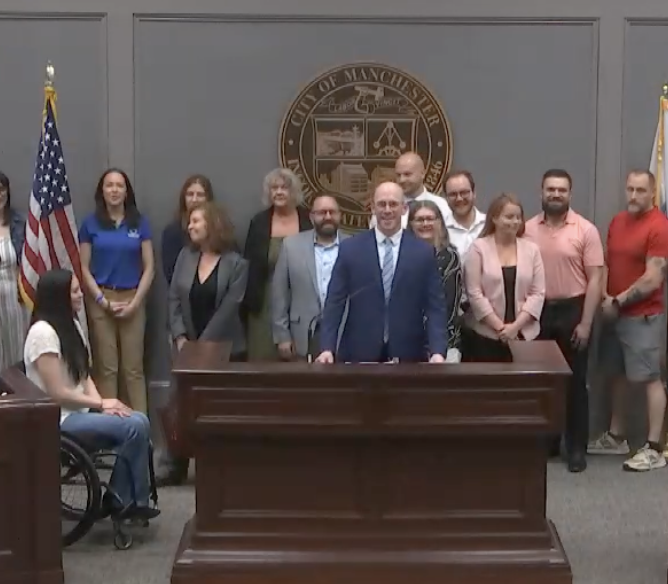Manchester Police Face Uphill Battle Without Bail Reform, Ruais Says

Manchester’s neighborhoods are struggling to keep up with the revolving door criminal justice system that’s releasing violent suspects even before their arrest reports are complete.
Mayor Jay Ruais said Monday city residents are fed up with a system that allows people charged with violent crimes to get out with no cash or personal recognizance bail within hours. In many cases, those same people are arrested again on new charges.
“The safety of our city is non-negotiable, and the men and women of the Manchester Police Department are heroes, full stop. Unfortunately, the state’s current bail system is undermining their efforts to make Manchester safe. When 40 percent of those arrested are ending up back on our streets, and 27 percent of those arrested are already out on bail, our police are fighting an uphill battle,” Ruais said.
Since the start of the year, Manchester Police have arrested 1,646 people, and at least 40 percent — more than 650 of those suspects — were released almost immediately on PR bail. The state needs to finally step in and fix the bail system that’s fueling the problem in Manchester, Ruais insists.
“There is not a single thing that would have a more transformative impact on the quality of life in our city than passing bail reform. It’s crucial for our legislators to take action to ensure the safety of our community and prevent repeat offenders from cycling through arrest, release and rearrest,” Ruais said.
Republican gubernatorial candidate Kelly Ayotte got a look at the problem up close during her recent ride-along with Manchester police. The officer she rode with had just returned to work after a violent encounter with a suspect who was out on bail, she said.
“Last week, I did a ride along with the Manchester Police Department, and the officer I accompanied had previously been injured by a criminal let out on bail, resulting in him being out of work for six months. Our state’s failed ‘bail reform’ experiment has created a revolving door that allows violent criminals back into our communities, putting officers at risk and undermining their efforts to protect Granite Staters,” Ayotte said.
Ruais is focused on seeing bail reform happen. On his first day as mayor, he traveled to Concord to lobby state lawmakers to the cause. It’s a more direct approach than that of his predecessor, Democrat Joyce Craig, who advocated for the lower standards for bail that have released so many repeat offenders on the the streets.
Craig did not respond to a request for comment about her current view of bail reform. Executive Councilor Cinde Warmington, the other Democratic gubernatorial hopeful, also declined to comment.
A proposal to change the bail system is currently under debate in the legislature. After the House passed a bill to tighten up the bail system and create a new bail magistrate position, the Senate weighed in with amendments to require that people charged with certain violent crimes have a hearing before a judge before being allowed out on PR bail. Reforming bail is now splitting Democratic unity in the Senate.
One of the three contenders in the Democratic primary for U.S. Rep. Annie Kuster’s seat in Congress, state Sen. Becky Whiteley (D-Hopkinton), opposes pretrial detention, saying it increases the odds an innocent person will plead guilty to a crime they did not commit.
“Do we want that?” Whitley said during a recent Senate debate. “That’s really troubling.”
But Senate Minority Leader Donna Soucy (D-Manchester) said lawmakers must act as the problem is only getting worse.
“Doing nothing can’t happen,” Soucy said. “We’re never going to get it perfect. We have to get it as close to right as we can.”
Ayotte said as governor she’d protect police officers and citizens by keeping violent offenders in jail.
“As governor I will shut and lock the revolving door to keep our officers – and our communities – safe. I thank Mayor Ruais for fighting on this issue for the people of Manchester and the brave men and women of the Manchester Police Department,” Ayotte said.



